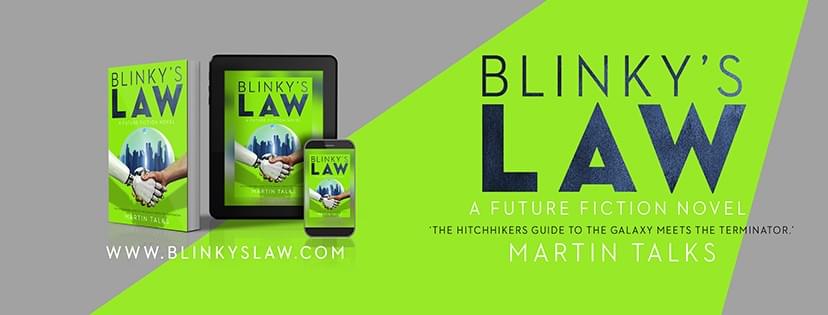In the recent summit on artificial intelligence in the UK, Elon Musk postulated a future where "no job is needed”. Is he right? And if he is, what could it mean for us? And how do we get in the right mindset now to be ready for this potential future?
My approach is to employ 'useful fiction'—a blend of factual research and speculative storytelling—to engage with these complex issues. This enables me to create scenarios that are 'rooted in the real,' but also reimagine my reality so that I can see it more clearly. I have been pondering questions about AI and jobs for a while. In 2020, my future fiction novel ‘Blinky’s Law’ was published in which I imagined, amongst other things, the future ofwork. Here are 5 out-takes from Blinky’s Law:
1. Robots as the New Workforce
Imagine walking through city streets where robots have taken over mundane tasks, from window cleaning to delivery services. The protagonist in Blinky’s Law, Hiu, lives in such a world, observing that these roles suit robots far better than humans. His wry comment, "Rather them than me," echoes a sentiment that many of us feel about a lot of jobs.
2. The Ceremonial Role of Humans in Work
Hiu's role as a "Manager" is more symbolic than practical in this AI-dominated future as Society requires companies to maintain a veneer of human oversight.
‘Every company has to have the quota of at least one human Manager by order of Society.’ His main responsibility is ‘to supervise the systems, robots and AI to ensure 'meaningful human control'. However, it’s not clear what human control really means.
3. Vulnerability Across All Professions
No job sector is immune to the sweep of automation:
- From management consulting to the legal profession, Hiu's experiences reflect a trend where human expertise is progressively replaced by algorithms capable of executing tasks with precision—raising questions about our future role in professional services. ChatGPT and others are already more than capable of caselaw, legislation and document retrieval and analysis as well as contract drafting.
- Even the creative and technical domain of coding isn't safe from AI's reach. Tools like GitHub Co-pilot can already do a lot of what human coders used to do.
- Fields we perhaps thought impermeable to AI impact, from music (think Mubert, the Generative AI) and surgery (robotic surgery is incresing) are also transforming.
4. The Quest for Meaning in Work
Elon Musk said of the end of jobs that “I don’t know if that makes people comfortable or uncomfortable.” In Blinky's Law, Hiu observes that a lot of jobs currently done by humans are not that fulfilling: ‘working day after day, and then sitting at home night after night, lives slipping past. All that energy, all that potential, all that life, all drifting away for what? So we could extract people’s data to give them more and more things they didn't need?’ This invites us to ponder the intrinsic value of our work beyond economic survival.
5. Contemplating Work's New Purpose
In a moment of clarity, Hiu observes that AI automation is an invitation for all of us to seek out work that is meaningful and purpose-driven: 'One moment he was autopiloting to work, going through the motions, the routines, the normal stuff; but now he was being forced actually to think about things, about what he was doing, about what it was all about.' The rise of Generative AI should be having the same impact on everyone by jolting us out of our autopilot mode.
What is Your Take on the Future of Work?
Do these out-takes from Blinky's Law make you feel comfortable or uncomfortable? As we hurtle into the AI future, 'useful fiction' like 'Blinky’s Law' can help us see our worlds more clearly and so help us find our path by exploring new definitions, purposes, and meanings for work.
I’d be interested to hear your thoughts.
For more information on Useful Fiction click here.
Martin Talks
Author and consultant
Blinky’s Law
matomico.com
